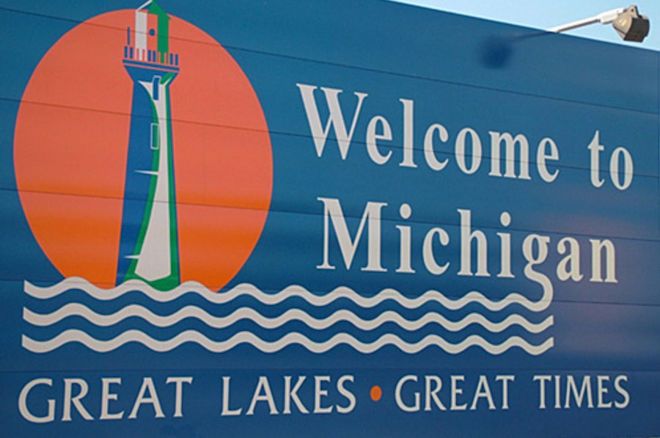We reported earlier this week that legislation regarding online gaming and sports betting was going to be under consideration within the House Ways and Means Committee in Michigan. The Lawful Internet Gaming Act introduced some time ago by Representative Brandt Iden has been tweaked a number of times in the hopes of seeing the two industries brought to the state. Changes involving betting data and taxes seem to be okay with lawmakers, as the bill was approved and will now move forward.
Bill Approved
Also known as H 4311, the bill was passed within the House committee with a vote of 10 to 1. The one lone vote in opposition belonged to Representative Rebekah Warren. She is close to Governor Gretchen Whitmer, which might be a sign that the Governor may still not be approving, even though changes she wanted have been included.
Iden first wanted to push the legislation through the committee in May but was stopped as there was too much opposition at the time. The tax rate set at that time for online gambling was 8%. Now, a new tiered tax structure has been implemented that will go as high as 26.25% for commercial casino venues.
Those opposed were worried that there would be a decrease in the revenues earned for the state based on the tax percentage differences between land-based casinos and online gaming sites. At the time, Governor Whitmer provided info from an analysis completed by the State Treasury. The analysis called for a tiered tax structure, one that would start as low as 8% but go as high as 40%. Iden tried to show Whitmer that this would not work, but she was unwilling to listen.
Tax Structure
Iden has continued to state that the governor and her office have not spoken to him about the issues. He still went ahead and made the tax changes to a tiered system within the legislation, but did not go as high as the Governor’s recommended 40%.
The new proposed structure would be based on revenue and would phase out during a five year time frame. During the first three years, a 4% tax will be set on revenues that are under the $4 million mark. Revenues of $4 million to under $8 million will be taxed at 6%. Revenues of $8 million to $10 million will be taxed 8%. The higher range, from $10 million to $12 million will be taxed at 10%. Those who earn $12 million or more will be taxed the most at 19%.
After the three year time frame, the rates will increase by 2% each year. After the two years, the level will be permanent for each revenue grouping. The commercial casinos in Detroit must pay an additional 3.25% in taxes to the city, which pushes up the overall total to 26.25%.
Aside from the tax issue, another major point of contention was school funding. In the state, over 25% of the lottery revenues is placed in the School Aid fund. The Governor is worried that the online gambling industry will take away from the online lottery ticket sales which will reduce funding for childhood education.
Iden has decided to address these concerns by stating that by the end of 2020 and each December 31st after next year, if the contributions from the lottery’s iLottery program to the school aid fund are less than $70 million, the iGaming fund will be used to provide money to the school aid fund.
We shall see how the bill moves forward and if Iden will finally complete the long, drawn-out process of seeing online gaming come to pass in the state.




